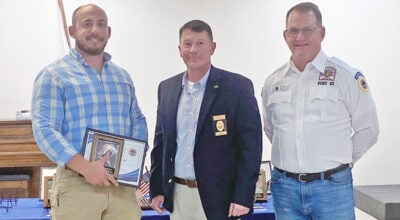UA searching for parents of children with cancer
Published 12:00 am Tuesday, March 8, 2016
Cancer can strike anyone, but it can be especially difficult if you are a parent of a child with cancer.
The University of Alabama wants to understand the challenges faced by parents with children with cancer.
Dr. Sherwood Burns-Nader, a UA assistant professor in the College of Human Environmental Sciences’ department of human development and family studies is looking to capture a brief snapshot into the life through a new study.
“Parents who have a child with cancer have so much that goes on in their daily experiences,” she said. “One day their child may be feeling great, and the next day they’re experiencing side effects from chemo or their immune system is compromised because of treatment.”
Burns-Nader said that parents often have to drive to clinic or the hospital on a weekly basis, and sometimes more frequently and that there are out-of-pocket expenses.
“They have a lot on their plate, and it fluctuates day to day,” she said. “Some days they get good news, some days they get bad news. How do those day-to-day changes relate to their overall coping?”
Previous studies have typically been retrospective – looking at a parent’s experience after their child was cured or they finished treatment, but Burns-Nader wanted something more immediate.
Her Parent Reflection Study, which is currently recruiting parents, will look at a parent’s experience over a seven-day period and how that relates to their coping and satisfaction with medical care and medical staff.
Parents participating in the study will log on to an online website and complete a daily reflection for seven days.
It is like a journal, but there are preset questions, and parents are asked to rank those responses on a scale of 1 to 5.
These questions range from emotional and financial stress the parents are facing to how helpful and informative medical staff has been.
“We ask that the parents complete the daily reflection every day at the same time so we can get a true depiction of a 24-hour time period,” she said.
There’s reward for parents who participate.
For each day they participate, they will receive a $10 electronic gift card emailed to them; they can receive up to $70, if they participate all seven days.
Burns-Nader said the first day, parents are asked to complete a demographic questionnaire, but they only identifying information gathered is an email address.
The only criteria are that the child has been diagnosed within the last six months, the parents are 18 years and older and they have daily access to an email account and the Internet.
The study is not limited to Alabama families.
“These parents are experiencing a lot of different emotions and have numerous challenges, but if we can gather some information on just those day-to-day changes, — whether it be the child’s condition or the expense of traveling to receive care or paying for medication – then maybe we can better understand how we, as a medical team, can help them even more,” Burns-Nader said. “Maybe they need more resources, or maybe there are other ways we can help minimize the impact or stress. If there are additional ways we can help, then we should definitely look into that.”
For more info, email parentstudy.ua@gmail.com.




